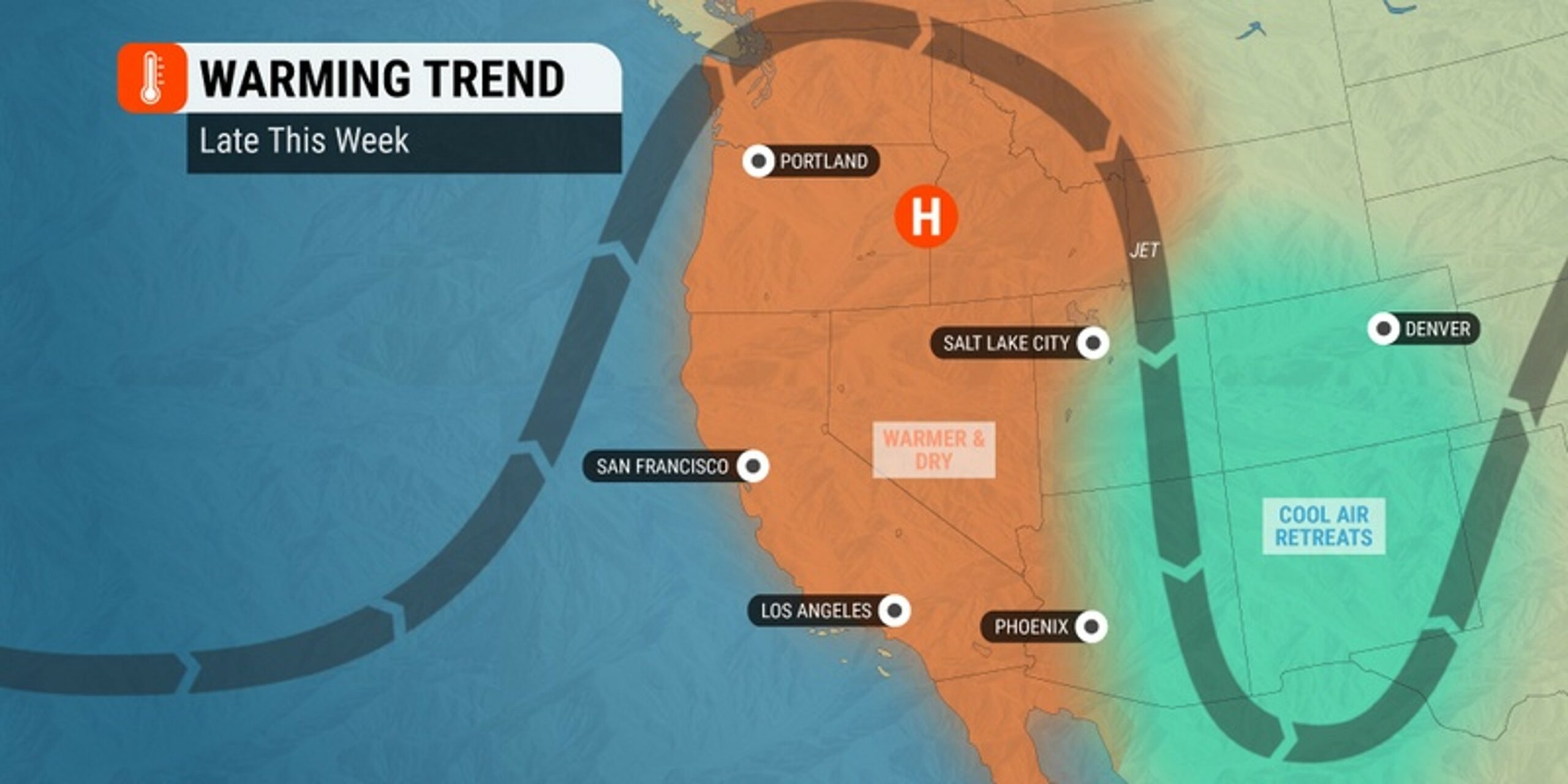
Heavy Rain, Flooding, and Chance of Severe Weather Staring Down the Southern U.S.
January 22, 2024
Posted: May 12, 2023 9:03 am





A potentially dangerous heat wave is spreading across the Pacific Northwest just ahead of the Mother’s Day weekend. Who will see the heat and how hot will it get? Here is what you need to know.
Some of the most populated cities across the Pacific Northwest are bracing for what is expected to be the first 90-degree readings of 2023. A large area of high pressure is building up over the western third of the U.S. to end the week, sending the mercury soaring up to 25 degrees above normal for this time of the year.
The spring heat wave is set to impact California and up through the Pacific Northwest. Western Canada will also get in on this heat, translating to bad news for the wildfires currently burning in Alberta and British Columbia.
The National Weather Service (NWS) has issued several heat advisories and excessive heat watches for some portions of the western U.S. Likewise, Environment Canada has issued similar statements for parts of the provinces of Alberta, British Columbia, and Saskatchewan.
The western U.S. had been experiencing temperatures that were below normal for the first part of May, making this stark warmup seem even more dramatic. Temperatures will begin the climb into the 80s in Portland by Friday with Seattle seeing these readings by Saturday.
By the end of the weekend, both cities may see temperatures that break the 90-degree benchmark.
Average temperatures for the middle of May for both Portland and Seattle tend to hover in the 60s. It is usually the end of June or the beginning of July before the cities see their first taste of 90-degree weather.
Seattle could break the record for the earliest 90-degree day in history, a date that currently stands at May 17, 2008.
Consecutive days in the 80s is also an anomaly for the Emerald City. Seattle typically experiences only two days throughout the entire month of May at this level.
Daily records may also fall across this region with this heat wave. The current record for May 12 in Portland is 87 degrees, going all the way back to 1973. This record could be in danger of being eclipsed. Seattle may see the May 13 record of 85 degrees fall as well as the record for May 14 of 88 degrees. Both of these records were set in 2018.
Local officials are warning residents to take this heat seriously. It is understandable to be caught off guard by heat of this intensity this early in the season, particularly for a part of the country that does not experience exceedingly hot summers in general.

It is recommended to stay well hydrated and avoid being outside during the peak afternoon heating hours.
While this heat will certainly be intense by May standards, it will fall well short of what the Northwest experienced during the record-breaking summer of 2021. During this time, Portland hit 116 degrees while Seattle broke the all-time record of 108 degrees.
Although the temperature departures will be the most extreme in Washington and Oregon, it will also be unseasonably warm throughout parts of California. The state’s San Joaquin Valley will see readings that climb into the upper 90s this weekend, encompassing cities such as Fresno and Bakersfield.
Western Canada will also be under the gun for the heat. For instance, Vancouver, British Columbia is forecast to see the high temperature reach 80 degrees by early next week. The warm and dry weather from last winter is already causing problems as wildfires burn across the region.
Looking ahead, the heat is expected to break by early next week in the Northwest and California. Building clouds will bring a chance of rain and thunderstorms to the western U.S.
Despite the cooling temperatures compared to the weekend, the mercury is forecast to linger slightly above normal for the middle of May for the duration of the week.
Did you find this content useful? Feel free to bookmark or to post to your timeline for reference later.

January 21, 2024

January 19, 2024

January 18, 2024